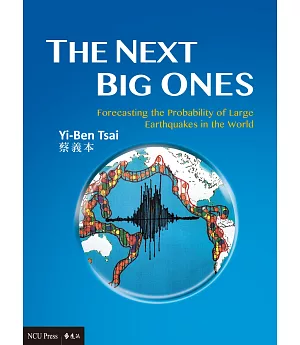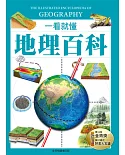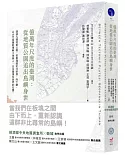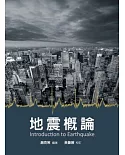本書主要目的在評估全球及世界各分區,未來數十年大地震發生的機率。作者利用新的地震活動度回歸公式,計算全球及主要地震帶,不同規模的大地震在特定時間段的發生機率。 這本書是作者五十多年來,為了減輕地震災害,致力於地球物理學及地震學的研究和教育,所積累的具體成果。作者希望讀者發現本書使用的研究方法,有助於減少災難性地震造成的傷亡及破壞。
The primary purpose of this book is to present quantitative forecasting of the mid-term probability of large earthquakes both globally and over various regions of the world. The author
used the novel seismic activity regression formula to calculate the probability of an earthquake, in the global and major seismic zones, with any given magnitude at any given time since the
most recent earthquake of the same magnitude. This book is the author's 50+ years accumulation of achievements in researching and teaching geophysics and seismology for mitigation of earthquake
disasters. The author hopes that those after him will find the methodology in this book to be helpful in limiting the death and destruction caused by earthquakes of catastrophic
magnitude.
好評推薦
“This is an excellent summary of the life-long contributions of the author Dr. Yi-Ben Tsai, who has essentially led the initiation in 1960s and its subsequent development during the ensuing
half Century, of the Taiwan Earthquake Research Program, which has led to one of the best and most productive seismological research enterprises in the world. Based on his Taiwan work, in this
book Dr. Tsai further gives a comprehensive outline on the status of the earthquake science and hazards in the world that should be most valuable for professionals as well as the interested
public.”– Ta-Liang Teng, Professor of Geophysics and Seismology, University of Southern California, USA
“Dr. Yi-Ben Tsai had an extensive career as a research seismologist, an educator, academic/research administrator and in industry all in earthquake country. This book is the result of his
labor of love – he recruited his whole family in the last stage of his writing to complete the manuscript. In this book, he based his seismicity forecast on a modified way to estimate
Gutenberg-Richter relation with measure of uncertainty on the annual rate and applied the calculation to all major seismic regions of the world. It is a useful reference for readers concerned
with the seismicity of the earth.”– Francis T. Wu, Professor of Geophysics, State University of New York at Binghamton, USA
“This is a wonderful book for those who are interested in earthquakes and the global tectonics.
In addition to the global seismicity, general seismotectonics are introduced in many regions where the next big earthquakes are expected.”– Sun-Lin Chung, Distinguished Research Fellow and
Director, Institute of Earth Sciences, Academia Sinica, Taiwan
“The excellent book integrates global seismicity data, plate tectonics and quantitative forecasting of the probability of large earthquakes both globally and over various regions of the
world. It is a must-read for students, academics, and professionals in seismic geosciences.”– Ching-Hua Lo, NTU Chair Professor of Geosciences and Executive Vice President, National
Taiwan
“Prof. Tsai is a pioneer for Earth Sciences studies in Taiwan. His vision in earthquake science and engineering brought significant impact to the society of Taiwan for earthquake hazard
mitigation. This book compiled the global seismicity to bring in the attention of high seismic hazard region, and provide fundamental message for earthquake science and engineering.”– Kuo-Fong
Ma, Professor and Chair of Earthquake - Disaster & Risk Management (E-DREaM) Center, National Central University, Taiwan
“A great book for an excellent introduction of seismology as well as earthquake engineering. It provides a lot of practical experiences to face the next big earthquakes.”– Yih-Min Wu,
Professor of Department of Geosciences, National Taiwan University, Taiwan
“Professor Yi-Ben Tsai wrote this book based on his outstanding research presenting a complete analysis of global earthquake statistics. Professor Tsai devoted his life to earthquake
observation and study. As a leader in the development of earth science and technology in Taiwan, he is a role model for global earth science researchers. This book is definitely worth
recommending to students and teachers in universities and research institutes and also serves to commemorate professor Yi-Ben Tsai, the father of Taiwan seismology.”– Wen-Yen Chang,
Distinguished Professor and Dean, College of Environmental Studies, National Dong Hwa University, Taiwan
“This is a great contribution to earthquake studies, with an innovative theory based on fundamental seismological knowledge. As Professor Tsai stated, hopefully the methodology in this book
can be helpful in limiting the death and destruction caused by earthquakes. The data can be significant for policy makers or anyone making important decisions on earthquake preparedness.”–
Yi-Heng Li, Senior Researcher of Green Energy and Environment Research Laboratory, Industrial Technology Research Institute, Taiwan
“This book is an excellent reference book for the patterns of global seismicity and the evaluation for the probabilities of large earthquakes in the world. Dr. Tsai devoted himself to the
study of the seismic hazard and this book shows the passion of his work. For the scientific perspective and also in memory of Dr. Tsai, this book is worth having.”– Hao Kuo-Chen, Associate
Professor of Department of Earth Sciences, National Central University, Taiwan
“An excellent manifest of the lifelong work and focus of a devoted seismologist on a pressing topic facing our society today and in the future. The theoretic derivation and explanation are
clear; the data compilation and analysis are painstakingly comprehensive and detailed.”– Chin-Wu Chen, Assistant Professor of Institute of Oceanography, National Taiwan University, Taiwan





















![地質季刊第33卷1期(103/03)[附光碟]](https://www.books.com.tw/image/getImage?i=https%3A%2F%2Fwww.books.com.tw%2Fimg%2F001%2F063%2F53%2F0010635331.jpg&width=125&height=155)